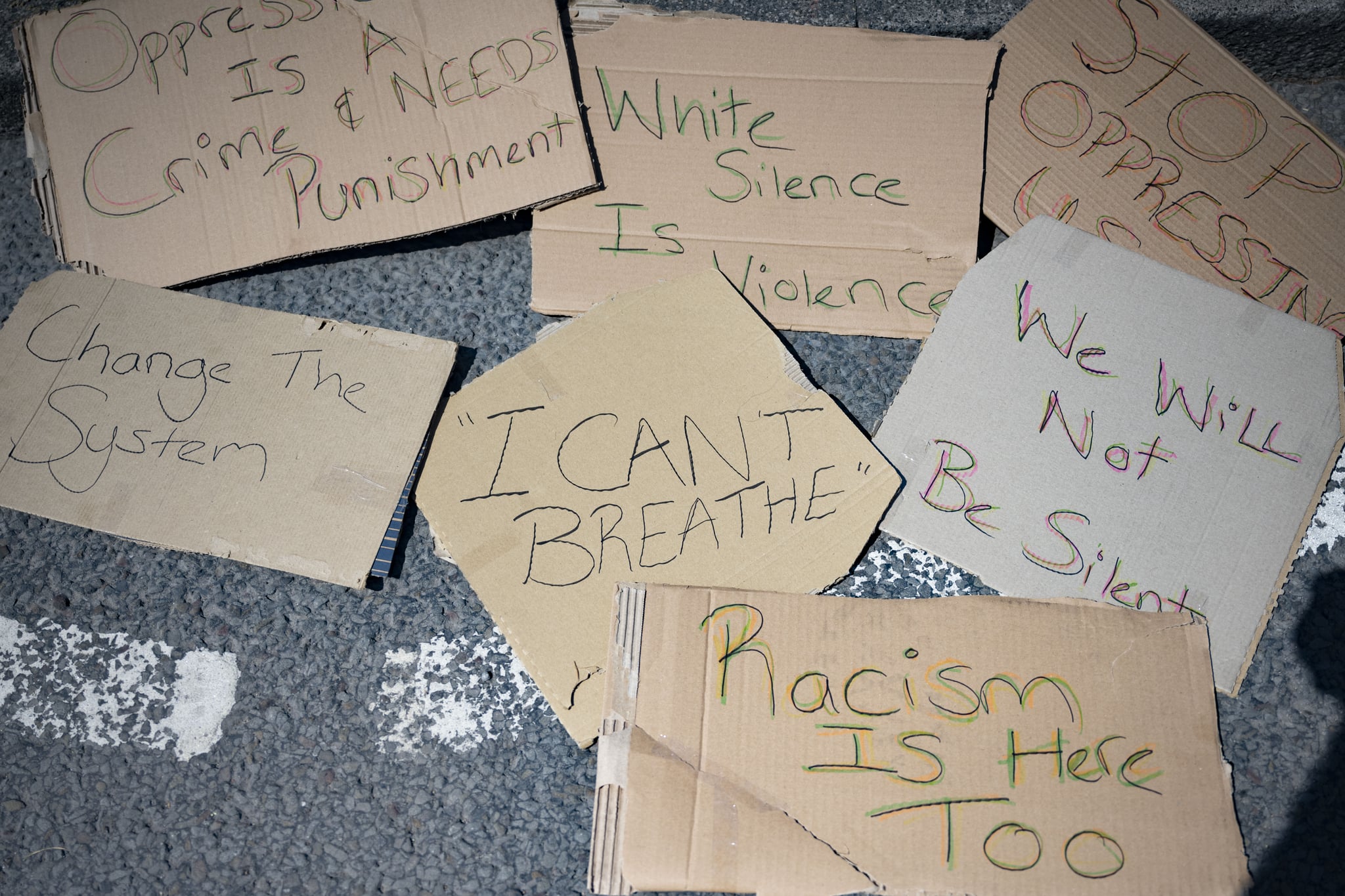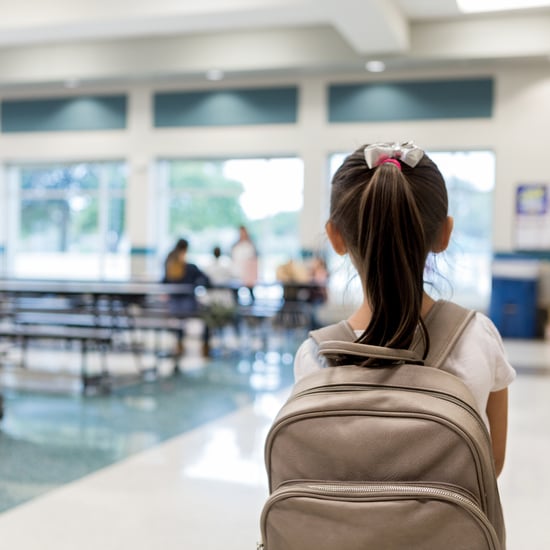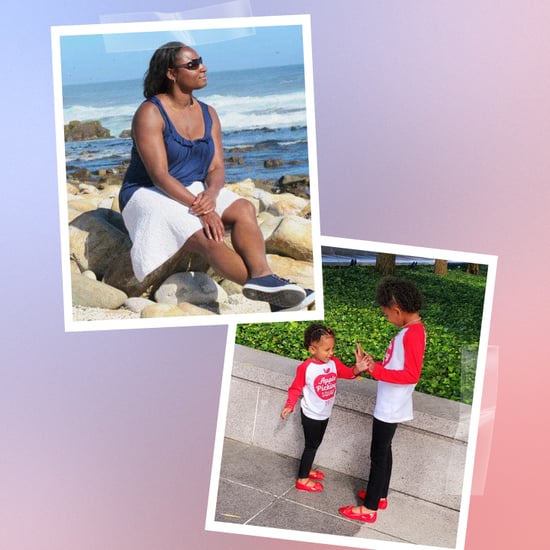Things Families Can Do For Racial Justice
4 Things Non-Black Families Can Do For Racial Justice

The wheels of justice are being propelled forward through protests and demonstrations being held throughout both the United States and the world. Each time our timelines refresh, more footage is released showcasing the plight of the diligent, refusing to remain silent about the brutality that Black people continue to face in America. The recent murders of George Floyd, Ahmaud Arbery, and Breonna Taylor perpetuated by law enforcement have rekindled the urgency for justice, and yet there are still people standing on the sidelines wondering how they can help.
It's important to understand that real change will only occur when the non-Black community rises up, more so than the Black community itself. It is unfair to seek out your Black friends each time another name becomes a trending hashtag to find out what you can do to help during this "difficult time." There are too many pieces of literature, resources, and organisations filled with information to answer your questions and point you in the right direction.
One key to turning the tide is to start within your own household by making racial justice not just a phrase or idea but an action lived out daily by you and your family. To get you started, here are four things you can do to see that your family contributes to the fight for racial justice.
- Educate yourself and your household. Truthfully, education is an obvious first step for anyone to take who is serious about becoming an ally. It's important to understand that systemic racism goes beyond racial slurs and racial profiling. "It is comparatively easy for whites to identify overt acts of racism like racial slurs; it is often harder for them to see how racism is baked into the structure of America, implicating all of us," said David Nurenberg, Ph.D., associate professor of education at Lesley University. "When competent white allies call attention to injustices in their communities, their voice legitimates the complaints of people of colour that might otherwise be dismissed by a white audience." It's impossible to know how to come against a system that you don't understand. Reading books on race like White Fragility by Robin DiAngelo, On the Other Side of Freedom: The Case For Hope by DeRay Mckesson, and Between the World and Me by Ta-Nehisi Coates can help you grasp the fullness of racism in America. There are children's books available as well to get a conversation going with your little ones so they can grow up as allies.
- Use Your Platform to Change the Narrative. Videos and photos from protests are being posted faster than people can view them. Along with each post is a slant that positions the Black community as aggressors lighting the world on fire. Not everyone is built to walk the streets in solidarity, and there is no shame in knowing that those spaces aren't for you. You can do a lot from the comfort of your home by using your social media platforms to contribute to an honest narrative. For every post that claims the Black community is responsible for all the looting, post evidence of non-Black citizens with arms full of stolen merchandise. For every #AllLivesMatter post, respond not just with #BlackLivesMatter but also with how harmful the alternative spin is to the fight for racial justice. Encourage people to vote beyond the presidential election. Send text messages. Children as young as six can write letters. It might seem like a small gesture, but anytime you use your voice and the influence you have, even just over your small circle of friends, or your next play date, you give a little push to the overall movement.
- Think Small. Start Where You Are. You don't have to put on a facade as if you're this great revolutionary to assist in racial change. Most cities have organisations that work year-round to fight racism. Staying in the mix of what's happening in your immediate community can give you insight into what part you can play and keep you up to date on the current challenges plaguing your city. Attend your local council meetings. Attend school district meetings, join the PTA, and ensure that the curriculum being taught is accurate. Ensure that Black children are being treated with not just equality but also equity to ensure they are given access to quality education and treatment from faculty and staff. Volunteer when your community hosts an event. When the Black community within your city hosts an event, attend, volunteer, and show your support. Bring the kids out to make friends and build relationships.
- Put Your Money Where Your Allegiance Is. We vote with our pounds every day. In most cases, it's the only action that these institutions pay attention to. It's like the saying "those who can't hear must feel," and the best way to make them feel is to hit them in their wallets. Following the murder of George Floyd, the University of Minnesota terminated its contract with the Minneapolis Police Department. Afterward, the Minneapolis public school board issued a resolution to terminate the school district's contract with the MPD. If the MPD hopes to regain those contracts and the lost wages, they will have no choice but to address the systematic racism within their department, put systems in place to provide justice for victims like George Floyd, and hold officers accountable to ensure that the killing of Black people doesn't continue. Voting with your dollar will take a little research on your part. Dig deep. Find Black-owned businesses and contribute to them regularly, not just in times of emergency. Donate to organisations that are already doing the work that could use financial help to enhance their reach. Stop contributing to companies that use their influence in support of people responsible for Black community oppression. Incorporate your children by having them donate a portion of their allowance to a different organisation twice a month. Let them know what each organisation does, and let them pick where they'd like to contribute their funds. When the organisation accomplishes one of its goals, let your child know their donation helped to make that happen.
The bottom line is, the most important way you can enlist your family in the fight for racial change is to be an example. That goes further than any book you can read and video you can watch. When children see their parents defending others and showing support, they will model that behaviour and do the same.







